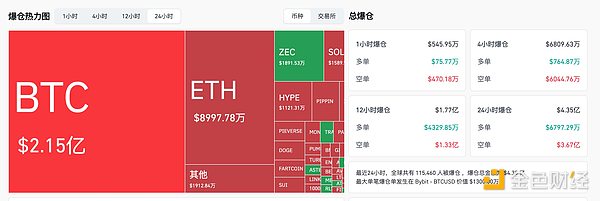Pi Network’s Strategic Upgrades and Valour ETP Launch: A Catalyst for Institutional Adoption and Price Momentum
- Pi Network's v23 protocol upgrades introduce decentralized KYC and enhanced security, aligning with global regulatory standards. - The Valour ETP listing on Sweden's Spotlight Stock Market provides institutional access to Pi, attracting $947M in assets under management. - These developments aim to address scalability, governance risks, and liquidity challenges while positioning Pi for institutional adoption. - Despite progress, Pi's price remains near $0.34, with success dependent on smooth Mainnet trans
The Pi Network’s v23 protocol upgrades and the Valour ETP listing represent a pivotal inflection point for a project long criticized for its lack of institutional credibility and technical robustness. By embedding regulatory compliance, enhancing security, and creating a regulated on-ramp for institutional capital, Pi is addressing systemic barriers that have historically hindered mainstream blockchain adoption. These developments, however, must be evaluated through the lens of their transformative potential and alignment with broader macroeconomic and technological trends.
Protocol v23: A Foundation for Scalability and Trust
The v23 protocol upgrades introduce a decentralized KYC framework aligned with ERC-3643 standards, a critical step toward meeting global regulatory expectations [1]. This integration not only streamlines identity verification but also reduces reliance on centralized authorities, balancing compliance with decentralization [2]. Complementing this is the Linux Node release, which expands Pi’s infrastructure to support cross-platform standardization, reducing operational friction for developers and service providers [3]. Such improvements are essential for scaling transaction throughput and ensuring network resilience, particularly as institutional demand grows.
Security enhancements, including biometric authentication via Passkey in v23.01, further bolster trust. By mitigating risks of unauthorized access and phishing, these features align Pi with enterprise-grade security benchmarks [4]. The phased rollout—Testnet1, Testnet2, and Mainnet—demonstrates a methodical approach to minimizing disruptions, a trait often absent in speculative blockchain projects [1].
Valour ETP: Bridging Traditional and Digital Finance
The Valour ETP, listed on Sweden’s Spotlight Stock Market, offers a regulated vehicle for investors to access Pi without navigating crypto exchanges. Denominated in SEK and carrying a 1.9% management fee, it has attracted $947 million in assets under management (AUM) by mid-2025, signaling institutional confidence [5]. This product democratizes access while addressing liquidity constraints, a key bottleneck for community-driven tokens like Pi.
The ETP’s success is part of a broader trend: institutional players are increasingly seeking diversified exposure to digital assets, as evidenced by Valour’s 85+ ETPs covering tokens like Shiba Inu and VeChain [5]. For Pi, this listing provides a regulated on-ramp, mitigating concerns about volatility and governance opacity that have historically deterred institutional participation [3].
Challenges and the Path to Price Momentum
Despite these strides, Pi’s price remains near its all-time low of $0.34, raising questions about its long-term viability amid macroeconomic volatility [6]. The token’s value proposition hinges on the successful execution of v23 upgrades and sustained institutional demand. If the ETP continues to attract capital and the protocol transitions smoothly to Mainnet (scheduled for September 3), the price could approach $0.40 or higher, assuming market confidence holds [7].
However, unresolved governance issues and centralization risks—such as the role of the Pi Foundation in protocol decisions—remain red flags. The network’s ability to transition from a community-driven experiment to a self-sustaining ecosystem will determine whether these upgrades translate into lasting value.
Conclusion
Pi Network’s v23 protocol and Valour ETP represent a strategic recalibration toward institutional readiness and regulatory harmony. While the road ahead is fraught with challenges, the project’s alignment with global compliance standards and its innovative infrastructure upgrades position it to capture a niche in the evolving digital-asset landscape. For investors, the key will be monitoring the interplay between technical execution, institutional adoption, and macroeconomic conditions—a delicate balance that could either unlock Pi’s latent potential or expose its vulnerabilities.
**Source:[1] Pi Network Announces Major Protocol Upgrade as Valour Pi ETP Trading Begins, [2] Pi Network's v23 Upgrade and Valour ETP Launch, [3] Pi Network v23.01 Upgrade Boosts Security and Readies Mainnet Launch, [4] Pi Network Prepares v23.01 Upgrade Ahead of September 3 Mainnet, [5] Pi Network Gets Valour ETP Listing in Sweden, Will Price ... [6] Pi Network's v23 Upgrade and Valour ETP Launch, [7] Pi Network's Biggest Upgrade Yet – Could This Spark ...
Disclaimer: The content of this article solely reflects the author's opinion and does not represent the platform in any capacity. This article is not intended to serve as a reference for making investment decisions.
You may also like
Bitcoin surges to $93K after Sunday flush, as analysts eye $100K

BTC returns to $93,000 after a brief dip to $83,000—what exactly happened?

Economic Truth: AI Drives Growth Alone, Cryptocurrency Becomes a Political Asset
The article analyzes the current economic situation, pointing out that AI is the main driver of GDP growth, while other sectors such as the labor market and household finances are in decline. Market dynamics have become detached from fundamentals, with AI capital expenditure being key to avoiding a recession. The widening wealth gap and energy supply are becoming bottlenecks for AI development. In the future, AI and cryptocurrencies may become the focus of policy adjustments. Summary generated by Mars AI This summary was generated by the Mars AI model, and its accuracy and completeness are still in the process of iterative improvement.

AI unicorn Anthropic accelerates IPO push, taking on OpenAI head-to-head?
Anthropic is accelerating its expansion into the capital markets, initiating collaboration with top law firms, which is seen as an important signal toward going public. The company's valuation is approaching 300 billions USD, and investors are betting it could go public before OpenAI.